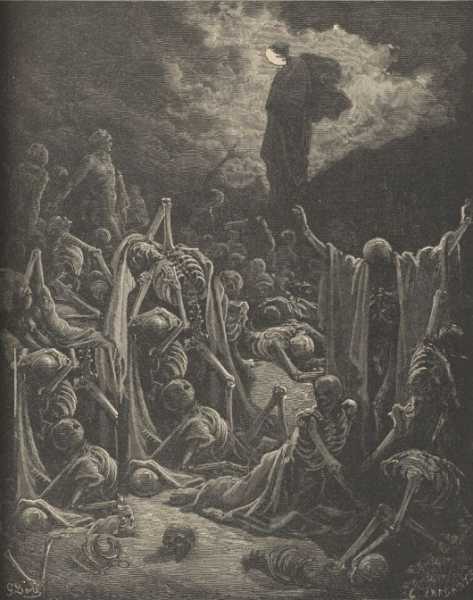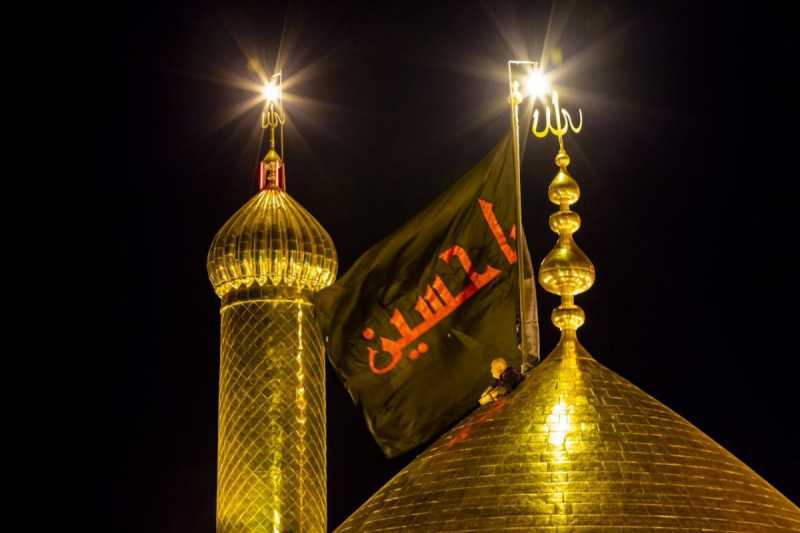
دابة الأرض ( The Earth Creature )
إيزابيل بنيامين ماما اشوري
سؤال ورد من الاخ ملحم حمادة يقول فيه : ((تفضلت بالجواب على سؤالي التالي : رأيت ذكر دابة الأرض عند أهل الكتاب, ما تأويلها عندهم؟))
أخي الطيب ملحم حمادة سأضع الجواب على العام لكي يستفيد بقية الاصدقاء .
في الاسفار الغير قانونية والتي رفضتها الكنيسة وهي موجودة بكثرة بلغتها الأصلية الآرامية او اليونانية والتي لم تترجم . في هذه الاسفار مذكورة اشياء يتم التستر عليها لأنها عصية على الفهم اوتُسبب احراجا تفسيريا لديهم . او لأنها تشكل خطرا عليهم لأنها تُشير إلى اشخاص محددين وأماكن محددة . فقد جاء ذكر دابة الأرض ثلاث مرات في هذه الاسفار واذكر أوضحها هنا كما في نص انجيل متي الغير قانوني كتاب ابو كريفا العهد الجديد القسم الأول المُسمى الضحية ودخانها من أناجيل الطفولة 1. ((حينيذ سجد يوياقيم ووجهه الي الارض وظل هكذا من الساعة السادسة حتي المساء وارتعب خدامه وخافوا جدا ، ثم رفع رأسه وقال كنت استمع إلى خطوات دابة الأرض وهي تجس الارض فنحن ننتظر ظهورها لتختم الأفواه وتُكبل الشياطين وتضع فرجتي السيف على الأمم الباطلة إنها علامة سليمان وتحمل ختمه فمن لا يملك سمة الخاتم سيفنى )) هذه الرواية لا يمكن أن استشهد بها على العام فانا لا يمكن ان اكتب بحثا ومصادره غير متوفرة بين ايدي الناس ولكن من ناحيتي فهي موجودة وهي امامي في نصوص غير معترف بها من قبل الكنيسة. ومن هي الكنيسة حتى تعترف او لا تعترف .الكنيسة التي لا تزال منذ ألفين عام تختلف في تفسير كلمة واحدة وهي : ((كسيلن أو كسولن)) ، والتي تعني شجرة أو وتد أو خشبة مستقيمة فيترجموها صليب !! بينما كل المراجع العالمية لمفردات الكتاب المقدس تقول انها عمود او شجرة حيث كان الرومانيون يعلقون المجرمين عليها.فكانت الكنيسة تُترجم كلمة كسولن إلى صليب رغما عن كل المراجع لأنهم لو ترجموها إلى حقيقتها ((شجرة)) لرمى كل المسيحيين الصليب من اعناقهم ولربما يعلقوا بدلا عنه شجرة أو عمود .
نعود للنص . يقول النص بأن يوياقيم وهو رجلٌ صالح ولربما نبي حيث نجد ذكره في التوراة في تتمة سفر دانيال 2: 4 ((وكان في بابل رجل اسمه يوياقيم وكان متزوجا ابنة حلقيا وكان يواقيم غنيا جدا وكان اليهود يجتمعون اليه لانه كان اوجههم جميعا)) إذن فإن يوياقيم كان رجل متقي وهو شخص وجيه فكلامه الآنف الذكر صحيح يُمكن الركون إليه . يقول يوياقيم : بانه إنما سجد هذه الساعات الطويلة لكي يستمع إلى خطوات ((دابة الأرض)) وهي تجس الأرض ومن علامات هذه الدابة انها تُكلم الناس كل لغاتهم وانها تحمل معها خاتم سليمان لتضع سمة الإيمان والكفر على جباه الناس فمن تختمه بالخاتم على جبينه يكون وجهه مشرقا ومن تختمه على أنفه يكون وجهه مظلما اسود فاحم وهو قول ابن عباس : تخرج الدابة فتسم الناس على خراطيمهم وقال ابن عباس تخاطبهم . ويقول ابن كثير في تعقيبا على كلام ابن عباس (وهو قول حسن ولا منافاة والله أعلم ) .
ومن علامات الدابة ان عندها سيف له فرجتين يُطبق فيه على الانظمة الباطلة فيقضي عليها .
يقول القرطبي في تفسير هذه الآية : (( وإذا وقع القول عليهم أخرجنا لهم دابة من الأرض تكلمهم )) سورة النمل آية 82. يقول: أن الدابة إنسان متكلم يُناظر أهل البدع والكفر ويُجادلهم ، لينقطعوا، فيهلك من هلك عن بينة ويحيا من حي عن بينه .
وقال المفسرون أيضا أن الدابة تخرج من المكان الذي ولدت فيه . تخرج من مكة من أعظم المساجد وقد ذكر هذا الطبراني في الأوسط عن حذيفة بن أسيد : فبينما هم إذا دبت الأرض. فبينما هم كذلك إذ تصدعت . وتصدعت كلمة بمعنى تخرج من الصدع أي الجدار المشقوق ولربما يُشير إلى حائط المستجار الذي انشق عند ولادة علي .
واما في بيان من تكون هذه الدابة فقد ورد في بحار الأنوار ج29/244عن الأصبغ بن نباتة قال: قال لي معاوية: يا معشر الشيعة تزعمون أن علياً دابة الارض؟ ـــ يعني الذي يمشي على الارض يدب منذ خلقها ـــ قلتُ: نحن نقول واليهود يقولون.
قال: فأرسل إلى رأس الجالوت فقال: ويحك تجدون دابة الأرض عندكم مكتوبة؟ فقال: نعم، فقال: وما هي أتدري ما أسمها؟ قال: نعم، اسمها: إيليا.
قال(الأصبغ) فالتفت إليّ (معاوية) فقال: ويحك يا أصبغ ما أقرب إيليا من علياً..
The Earth Creature
--------------------------- Mr. Mulhim Hamadah asked me the following question: "I noticed that Jewish and Christian books have mentioned "the earth creature", how do they interpret it?" The widely-available church-rejected non-deuterocanonical books (the non-translated holy books written in Aramaic and Greek languages) include information which the clergymen try to conceal, because these information, they believe, are difficult to understand or to interpret. The clergymen also fear the fact that these books might refer to certain persons and places. The creature of the earth was mentioned three times in these books and the most obvious text that mentioned it was the non-deuterocanonical Matthew scripture, Apocrypha book, the New Testament, The Childhood Gospels, part one which its title "the Victim and its Smoke". "Thus Joiakim prostrated in worship from six O'clock till the night. His servants felt scared and terrified, then, he lifted his head saying: I was listening to the steps of the creature of earth while it was engaged in espionage. We are waiting the appearance of that creature to seal the mouths, chain the devils and warn the unjust nations with a double-edged sword. This creature is the sign of Solomon that carries his seal ring; those who do not carry the seal mark will perish." I cannot rely upon the above-mentioned text as an evidence, because I cannot write a research that lacks references. However, these references are available in the texts which the church does not admit. And who is the church to admit or not? The church that underwent a two thousand years long disagreement upon the interpretation of one word (Ksiln or Ksulen) which means 'tree' , 'stake' or 'wood pole'. They translated this word as a 'cross'! While all the universal dictionaries of the Holy Bible have rendered it as a 'tree' or 'pillar' on which the Romans used to hang criminals. The church used to translate the word 'Ksulen' into 'cross' on purpose because if they translated into its true meaning, Christians would get rid of the cross and, maybe, put on a tree or a wood pole instead. Getting back to the text, one can notice that Joakim or (Joiakim) is described as being a good man, and maybe a prophet who is mentioned in the Torah in the Additions to Daniel 2:1-4. "There was a man living in Babylon whose name was Joakim. He married the daughter of Hilkiah, named Susanna, a very beautiful woman and one who feared the Lord. Her parents were righteous, and had trained their daughter according to the law of Moses. Joakim was very rich, and had a fine garden adjoining his house; the Jews used to come to him because he was the most honoured of them all." Then Joakim, according to the quotation, was a pious prominent Jew whose speech about the creature was true and reliable. Joakim says that he prostrated himself in worship for long hours because he was listening to the steps of the creature of the earth while it was engaged in espionage. One of this creature's distinguishing features is that it can speak with all tongues, and that it carries King Solomon's seal ring. The creature uses the seal ring to seal the foreheads of believers and turn their faces to be shiny, while it seals the unbelievers' noses and turn their faces to be black and gloomy. Ibn Abbas(1) said that the creature of the earth shall appear and brand people's noses, and then it shall speak to them. Ibn Katheer(2) described Ibn Abbas's speech as being "well said and cannot be contradictory". Imam Abu 'Abdullah Al-Qurtubi(3) in his tafsir (interpretation) of the chapter of The Ants, verse 82 of the Holy Quran, which mention the creature of the earth as the following: "And when the word shall come to pass against them, We shall bring forth for them a creature from the earth that shall discourse with them, because people did not believe in Our signs" Al-Qurtubi adds that this creature is a spoken man who will debate with the unbelievers in God and those people who follow heresies, until it dumbfounds them by showing the clear proof which they shall either follow it to live or ignore it to die. Other interpreters said that this creature will come forth from the very place he was born in. He shall come forth from the greatest mosques in Mecca. Al-Tabrani(4), in his book "Al-Awsat", quoted Hutheifa ibn Useid who said that the creature will come forth out of the crack. The crack may refer to the cracked wall of Kaaba called Al-Mustajar. This wall, most Muslims believe, had been cracked when Ali(5) was born inside the Kaaba. To show the identity of this creature, Al-Asbagh bin Nabatah [one of the loyal followers of Ali], in Bihar Al-Anwar(6), Part 29, P. 244, sustains that: " Muawiyah (7) asked me : O, Shiia! You pretend that Ali [bin Abi Talib] is the earth creature? I said we say so, and so do the Jews." Then Muawiyah sent for Ras' Al-Jalout(8) (the chief of rabies) and asked him: - "Woe unto you, Is the earth's creature mentioned in your Holy Books?" - "Yes, it is." Ras' Al-Jalout answered. - "And what is it? Do you know what its name is?" Muawiyah asked. - "Yes, I do. It's Elijah ". Ras' Al-Jalout answered. Then, Muawiyah turned to me, added Al-Asbagh, saying: "Woe unto you Al-Asbagh, how close the name of Elijah to Ali!"(9) ---------------------------------------------------------------------------------- Bibliographies: ----------------- (1) Abd Allah ibn Abbas was a paternal cousin of the Islamic prophet Muhammad. He is revered by Muslims for his knowledge and was an expert in Tafsir (exegesis of the Qur'an), as well as an authority on the Islamic Sunnah. (2) Ibn kathir :((1301–1373) a Muslim Muhaddith (narrator), Faqīh, Mufassir (one of the Sunni interpreters of Quran), and Historian) (3) al-Qurtubi (a classic scholar (1214-1273),a famous mufassir, muhaddith and faqih scholar from Cordoba of maliki origin. He is most famous for his commentary of the Quran, Tafsir al-Qurtubi). (4) Abu Ja'far Muhammad ibn Jarir al-Tabari (224 – 310 AH; 840–923 CE) was a prominent and influential Persian scholar, historian and exegete of the Qur'an from Tabaristan, modern Mazandaran in Iran. His most influential and best known works are his Qur'anic commentary known as Tafsir al-Tabari and his historical chronicle Tarikh al-Rusul wa al-Muluk (History of the Prophets and Kings), often referred to Tarikh al-Tabari. (5) Ali [bin Abi Talib]was the cousin and son-in-law of Islamic prophet Muhammad, ruling over the Islamic Caliphate from 656 to 661. Ali was also the first male who accepted Islam. (6) Bihār al-Anwār (meaning "Seas of Lights") is a comprehensive collection of traditions (ahadith) compiled by the Shi'i scholar Mulla Muhammad Baqir, known as 'Allama Majlisi (d. 1110/1698). It is a hadith collection, the second source of inspiration in Shia Islam. Bihar al-Anwar has 110 volumes. This book is one of the intellectual and scholarly masterworks of the Islamic Heritage. (7) Muawiyah ibn Abī Sufyān established the Umayyad Dynasty of the caliphate. Muawiyah and remaining members of his family were opponents of Muhammad and the Muslims. In 630, Muhammad and his followers conquered Mecca, and most of the Meccans, including Muawiyah, along with his father Abu Sufyan ibn Harb, became Muslims at the conquest of Mecca, but they kept on their hostility to Muhammad and his household. (8) Ras' Al-Jalout is Religious title of chief of rabies in Mesopotamia. (9) In Arabic language, Ali and Elijah are very closed in pronunciation


